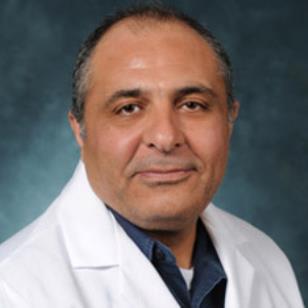Targeting CD4 Helper Function in HIV Vaccine Development
Wednesday, March 4, 2020
4:00 PM-5:30 PM
BIOMED Seminar
Title:
Targeting CD4 Helper Function in HIV Vaccine Development
Speaker:
Elias Haddad, PhD
Professor, Department of Medicine
Director, MD/PHD Program
Drexel University College of Medicine
Division of Infectious Diseases and HIV Medicine
Details:
Developing an effective HIV vaccine to prevent new HIV infections remains a top research and clinical priority. Recently, a large body of evidence established the importance of multiple antibody (Ab) effector functions, such as Ab-dependent cell-mediated cytotoxicity (ADCC), and Ab-mediated neutralization, in the control and prevention of HIV infection. Unfortunately, current HIV vaccine approaches failed to elicit such protective Ab responses. Broadly neutralizing Abs (bnAbs) are found in small proportion of HIV-infected human subjects.
Recent studies have revealed that passive transfer of these Abs elicits transient, but efficient antiviral activity in humans and NHPs, providing a proof-of-concept that HIV vaccines capable of generating such Abs might protect against HIV infection. Detailed analyses revealed that bnAbs accumulate substantial levels of somatic hypermutation on B cell receptors, or so-called affinity maturation, to acquire access to HIV envelope (Env) protein and improve their capacities to neutralize HIV-1 viruses.
Affinity maturation and isotype switching are key processes taking place in germinal center (GC) reactions, whose development is almost completely dependent on the function of a CD4+ T cell subset called follicular helper T (Tfh) cells. Thus, it is very likely that a successful HIV vaccine that is capable of eliciting strong Tfh response may improve protection against HIV infection. In this presentation, Dr. Haddad will show data that ADA-1 can harness Tfh function and can function as an adjuvant that can enhance the quality and quantity of anti-HIV response.
Biosketch:
Elias Haddad, PhD, received his doctorate in Immunology from the Department of Microbiology and Immunology at McGill University in Montreal, Canada. He did a postdoctoral training at the National Institutes of Health (NIH) in Maryland and later at University of Montreal in Canada. Dr. Haddad then became an Associate Professor at University of Montreal. In 2010 he moved to Florida and a Full Professor at the Vaccine and Gene Therapy Institute in Florida. In 2015, Dr. Haddad moved to Drexel University as a Professor in the Department of Medicine in the Division of Infectious Diseases and HIV Medicine.
Dr. Haddad is an Immunologist and Cell Biologist by training. However, his research sits at the interface of four disciplines: human immunology, systems biology, infectious disease pathogenesis, and vaccinology. His research portfolio combines basic science and applied clinical research aiming at developing vaccine adjuvants; improve vaccine efficacy, develop immunotherapies and identify digital biomarkers in personalized medicine. Dr. Haddad's research also emphasizes examining immune responses in special populations, such as the elderly, aiming at developing efficacious vaccines to improve their immune response and reduce the burdens of many infectious diseases in this population.
Contact Information
Ken Barbee
215-895-1335
barbee@drexel.edu

Location
Papadakis Integrated Sciences Building (PISB), Room 120, located on the northeast corner of 33rd and Chestnut Streets.
Audience
- Undergraduate Students
- Graduate Students
- Faculty
- Staff